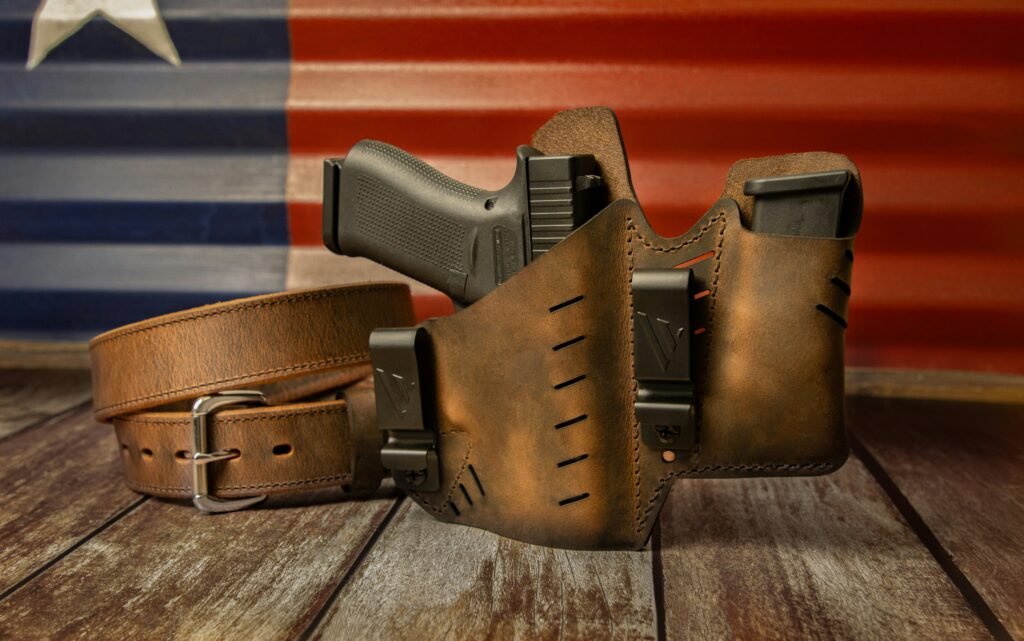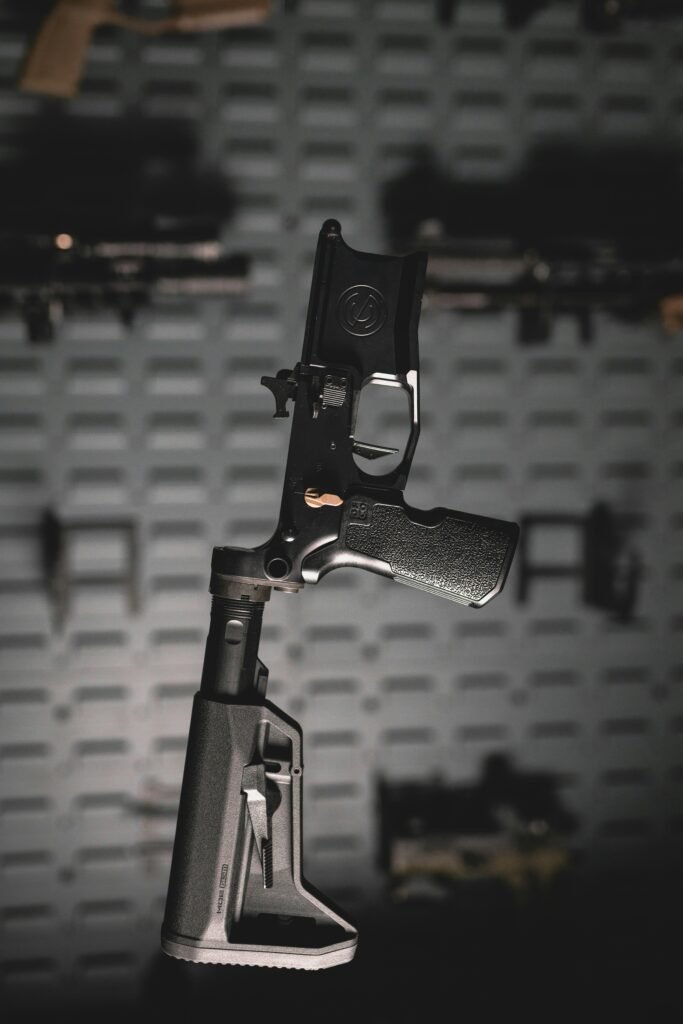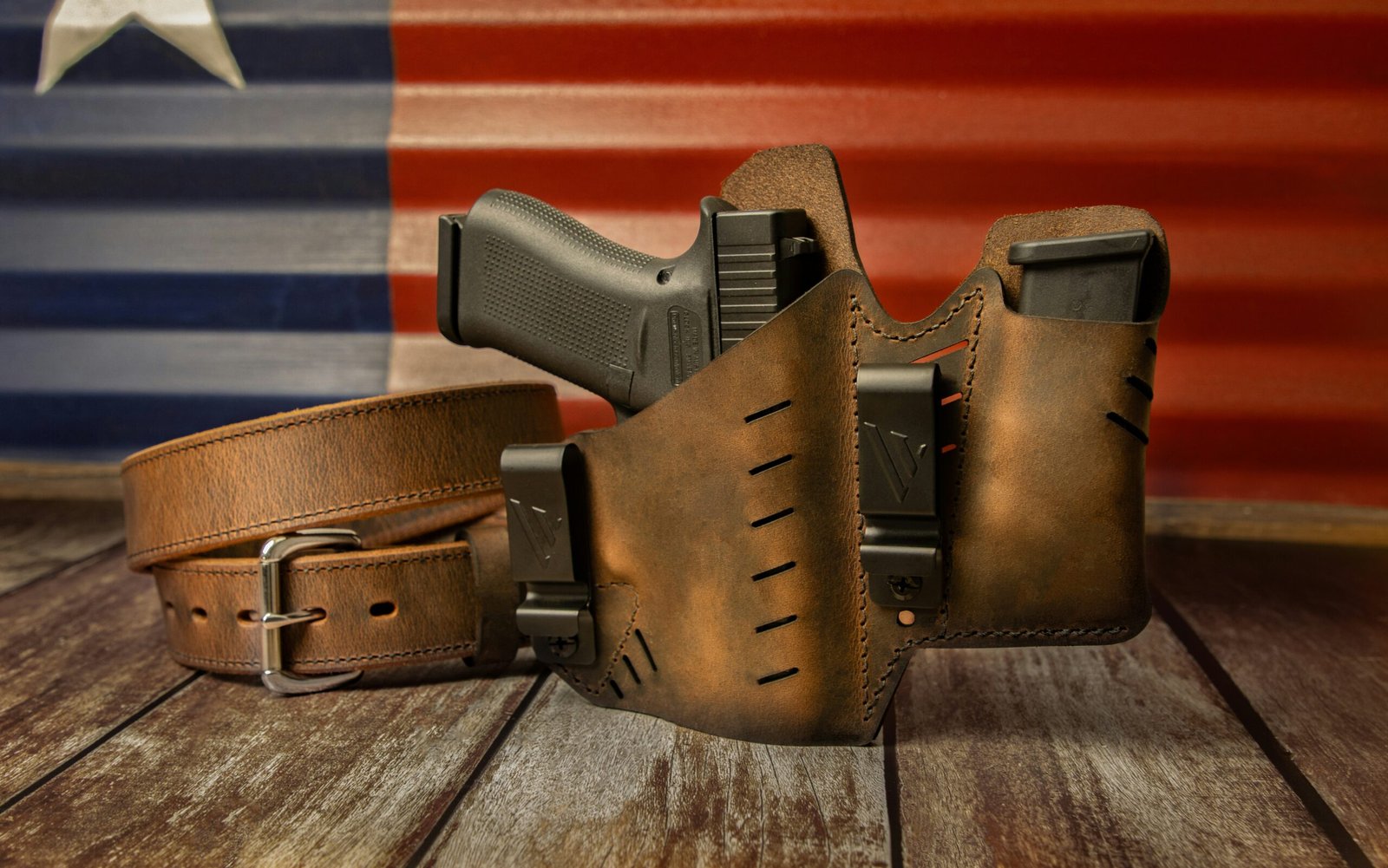If you’re a gun owner or planning to travel with firearms, it’s crucial to be well-informed about the interstate travel regulations for firearms. Understanding how to transport guns legally across state lines can save you from potential legal complications and ensure a hassle-free journey. In this article, we’ll provide you with essential information on the regulations governing interstate travel with firearms, covering topics such as transportation methods, required documentation, and specific state laws that you need to be aware of. So, grab a cup of coffee and let’s dive into the world of interstate travel regulations for firearms!
Overview of Interstate Travel Regulations for Firearms
Definition of interstate travel
Interstate travel refers to the movement of firearms across state lines. It involves transporting firearms from one state to another, whether by vehicle, airplane, or other means of transportation.
Regulation by federal law
The transportation of firearms across state lines is primarily regulated by federal law. The main legislation governing interstate travel with firearms is the Firearm Owners Protection Act (FOPA) of 1986. This federal law establishes certain guidelines and protections for individuals who engage in interstate transportation of firearms.
Regulation by state law
While federal law provides a framework for interstate travel with firearms, it is essential to be aware that individual states may enforce additional regulations. These state-specific laws can vary significantly and might include limitations on the types of firearms that can be transported, requirements for permits or licenses, and restrictions on carrying firearms in certain locations.
Purpose of regulations
The regulations surrounding interstate travel of firearms aim to strike a balance between ensuring the rights of individual gun owners and maintaining public safety. By implementing these regulations, authorities seek to prevent illegal trafficking, ensure proper documentation, and minimize the risk of firearms falling into the wrong hands. It is crucial for gun owners to understand and abide by these regulations to avoid legal issues and potential penalties.
Transporting Firearms across State Lines
Understanding federal regulations
When transporting firearms across state lines, it is essential to have a clear understanding of the federal regulations outlined in the Firearm Owners Protection Act (FOPA). FOPA allows individuals to transport lawfully owned firearms from one state where they are legal to possess to another state where they are also legal, as long as certain requirements are met.
Types of firearms allowed during interstate travel
The types of firearms that can be transported during interstate travel are generally those that are legally owned and possessed in both the departure and destination states. However, it is crucial to note that some states may have specific restrictions on certain types of firearms, such as assault weapons or high-capacity magazines. It is essential to research and understand the regulations of both the departure and destination states.
Transporting firearms in checked baggage
In the case of air travel, firearms must be transported in checked baggage and declared to the airline. The firearm must be unloaded and stored in a locked, hard-sided container. It is important to adhere to specific airline and Transportation Security Administration (TSA) regulations regarding the transportation of firearms to ensure compliance and a smooth travel experience.
Transporting firearms in a vehicle
When transporting firearms in a vehicle across state lines, it is crucial to comply with both federal and state regulations. The firearm should be unloaded and stored in a locked container separate from ammunition. Some states may also require the firearm to be stored in the trunk of the vehicle or another designated area. It is important to research and understand the specific transportation requirements of each state through which you will be traveling.

This image is property of images.unsplash.com.
Complying with Federal Requirements
Valid Firearm Owner’s Identification Card (FOID)
In addition to complying with federal regulations, some states may require a valid Firearm Owner’s Identification Card (FOID) for the possession and transportation of firearms. A FOID acts as proof that the holder is legally eligible to possess firearms. It is essential to research the specific requirements of both the departure and destination states to ensure compliance.
National Instant Criminal Background Check System (NICS)
When purchasing firearms from licensed dealers, individuals are subjected to background checks through the National Instant Criminal Background Check System (NICS). However, when transporting firearms across state lines as part of interstate travel, additional background checks are generally not required under federal law. It is important to note that some states may have their own background check requirements. Be sure to research and understand the regulations of both the departure and destination states.
Safe passage provision under the Firearm Owners Protection Act
The Firearm Owners Protection Act (FOPA) includes a safe passage provision that offers protections for individuals traveling with firearms across state lines. This provision allows individuals to travel through states where firearms may be otherwise illegal, as long as the travel is continuous and the firearm is unloaded, locked, and inaccessible from the passenger compartment of the vehicle. It is crucial to understand and comply with the safe passage provision to avoid potential legal issues during interstate travel.
Documentation and record-keeping requirements
While federal law does not require specific documentation or record-keeping for the transportation of firearms during interstate travel, it is highly advisable to keep relevant documents readily accessible. This includes any necessary permits, licenses, proof of ownership, or documentation required by individual states. Being well-prepared with the necessary paperwork can help avoid unnecessary complications or delays during travel.
State-Specific Regulations
Differences in state laws
Each state has the authority to enact its own laws regulating firearms, including those related to the transportation of firearms across state lines. The regulations can differ significantly from one state to another, making it crucial to research and understand the specific laws of both the departure and destination states. Failure to comply with state-specific regulations could lead to legal consequences.
Reciprocity and recognition of permits
Some states offer reciprocity or recognition of permits issued by other states, allowing lawful gun owners to travel with their firearms across state lines without repercussions. It is vital to research and understand reciprocity agreements between states to determine if your permit or license will be recognized in the states you will be traveling through. This information can be obtained from state authorities or reputable online resources.
State-specific transportation requirements
In addition to variations in firearms laws, some states may impose specific transportation requirements for the movement of firearms across their borders. These requirements may include the use of locked containers, restrictions on magazine capacity, or the need to store firearms in specified areas within a vehicle. Researching and adhering to the transportation requirements of each state is crucial for compliance.
Restrictions on certain firearms or accessories
It is important to be aware that some states may have restrictions on certain types of firearms or firearm accessories. These restrictions may include bans on assault weapons, high-capacity magazines, or specific firearm modifications. Before traveling, thoroughly research the regulations in both the departure and destination states to ensure compliance and avoid potential legal issues.

This image is property of images.unsplash.com.
Transporting Firearms on Commercial Airlines
TSA regulations for transporting firearms
When traveling by air, the Transportation Security Administration (TSA) has established specific regulations for the transportation of firearms. These regulations apply to both domestic and international flights departing from or within the United States. It is crucial to familiarize yourself with these regulations and to comply with all requirements to ensure a hassle-free and legal travel experience.
Firearms declaration process
When traveling with firearms by air, it is mandatory to declare the firearm during the check-in process. The firearm must be unloaded, securely stored in a locked, hard-sided container, and declared to the airline. The airline may require additional forms or documentation to be filled out during this process. It is important to follow the instructions provided by the airline and to comply with all requirements.
Requirements for ammunition
When transporting firearms on commercial airlines, it is important to note that there are specific regulations regarding the transportation of ammunition. Ammunition must be securely packaged in the original manufacturer’s packaging or in containers specifically designed for ammunition. It is crucial to check with the airline for any quantity restrictions or additional requirements for the transportation of ammunition.
Additional airline-specific regulations
While TSA regulations provide a baseline for the transportation of firearms, it is essential to keep in mind that individual airlines may enforce additional regulations or requirements. These additional regulations may include restrictions on the number of firearms allowed per passenger, specific dimensions for gun cases, or additional paperwork that needs to be completed. Researching and familiarizing yourself with the airline-specific regulations is crucial to ensure compliance.
Avoiding Legal Issues and Potential Penalties
Researching regulations before travel
To avoid legal issues and potential penalties, thorough research into the regulations of both the departure and destination states is crucial. Understanding the specific laws, requirements, and restrictions concerning interstate travel with firearms will help ensure compliance and a smooth travel experience. Utilize government websites, reputable resources, or consult legal counsel for interpretation and clarification of regulations.
Contacting state authorities for clarification
If you have any doubts or concerns regarding the laws or regulations of a specific state, it is recommended to contact the state authorities for clarification. These authorities, such as state police departments or relevant agencies, will be able to provide accurate information and guidance regarding the transportation of firearms across state lines. It is better to seek clarification beforehand to prevent any inadvertent violations.
Complying with transportation and storage requirements
Strictly adhering to transportation and storage requirements for firearms during interstate travel is crucial. Unloaded firearms should be securely stored in locked containers, separate from ammunition, and inaccessible from the passenger compartment of a vehicle. Storing firearms in compliance with the requirements of both federal and state laws will help ensure compliance and minimize the risk of accidents or unauthorized access.
Consequences of non-compliance
Non-compliance with interstate travel regulations for firearms can have severe consequences, including legal issues, criminal charges, fines, and the confiscation of firearms. It is essential to understand and follow the regulations in both the departure and destination states to avoid these potential consequences. Being knowledgeable and proactive in complying with the laws will help protect your rights as a gun owner and maintain public safety.

This image is property of images.unsplash.com.
Legal Considerations for Temporary Travel
Temporary travel under the Firearm Owner’s Protection Act
The Firearm Owner’s Protection Act (FOPA) provides certain legal protections for individuals who engage in temporary travel with firearms. While traveling, individuals can transport firearms through states where the firearm may be otherwise illegal, as long as the travel is continuous and the firearm and ammunition comply with federal regulations. It is important to be aware of the duration and purpose of your travel to determine if it qualifies as temporary under FOPA.
Duration and purpose of travel
FOPA defines temporary travel as travel that is reasonably expeditious, and without any unreasonable delay, from the place of origin to the place of destination. The firearm should be transported for lawful purposes, such as for personal protection, hunting, competitive shooting, or collection purposes. If your travel duration or purpose falls within these guidelines, you may be eligible for the legal protections provided by FOPA.
Storing firearms in temporary residence
If you are temporarily staying in a residence, such as a hotel or rented accommodation, it is essential to store firearms securely and in compliance with the property’s policies. Ensure that the firearm is unloaded, securely stored in a locked container, and inaccessible to unauthorized individuals. Following these precautions will help maintain the safety of both the firearm and those around you, while also complying with legal requirements.
Reporting requirements
Under FOPA, individuals engaged in temporary travel with firearms are not required to report their travel to any authorities. However, it is highly recommended to maintain a record of your travel itinerary, including dates, destinations, and any relevant documentation. This record can serve as proof that you have adhered to the requirements and qualify for the legal protections provided by FOPA.
Safely Transporting Firearms
Safe storage and secure transport of firearms
Ensuring the safe storage and secure transport of firearms is crucial for the safety of both the gun owner and the public. Firearms should be stored in locked containers or cases that are resistant to tampering or unauthorized access. These containers should be securely fastened and kept separate from ammunition. During transportation, it is crucial to prevent any accidental discharge or access to the firearm.
Use of locked containers or cases
When transporting firearms, the use of locked containers or cases is essential. These containers should be sturdy and designed specifically for firearms. Portable gun safes, hard-shell cases, or lockable gun bags are commonly used. The container should have a reliable locking mechanism that can resist tampering or accidental openings. Properly securing the firearm in a locked container provides an additional layer of safety and compliance.
Dealing with ammunition during travel
When dealing with ammunition during travel, it is essential to comply with federal regulations and any state-specific requirements. Ammunition should be securely packaged in the original manufacturer’s packaging or in containers specifically designed for ammunition. These containers should prevent movement and minimize the risk of accidental discharge. It is advisable to check with the airline, if traveling by air, for any restrictions or additional requirements concerning the transportation of ammunition.
Best practices for firearm transportation
To ensure the safe and secure transport of firearms, it is recommended to follow these best practices:
- Research and familiarize yourself with the relevant federal and state regulations.
- Ensure the firearm is unloaded and removed from accessible areas before transportation.
- Store firearms in locked containers or cases that are resistant to tampering or unauthorized access.
- Keep firearms separate from ammunition during transportation.
- Securely package ammunition in its original packaging or suitable containers.
- If traveling by air, declare the firearm during the check-in process and comply with TSA and airline regulations.
- Adhere to state-specific transportation requirements, such as storing firearms in designated areas within a vehicle.
- Avoid discussing or displaying firearms in public spaces during transportation to prevent unnecessary attention or misunderstandings.
Following these best practices will help ensure the safe and compliant transportation of firearms during interstate travel.
Firearm-Free Zones and Restricted Areas
Understanding prohibited areas
Firearm-free zones and restricted areas refer to locations where the possession or carrying of firearms is prohibited or highly regulated. These areas are established to ensure public safety and may include schools, government buildings, airports, courthouses, and other locations deemed sensitive or vulnerable. It is important to be aware of these prohibited areas, as violating regulations can lead to severe legal consequences.
Federal restrictions on firearms
Federal law imposes certain restrictions on carrying firearms in specific locations, such as federal facilities, airports, and post offices. These restrictions apply regardless of state laws and are in place to ensure the safety of individuals within these facilities. It is crucial to research and understand the federal restrictions on carrying firearms to avoid potential legal issues and penalties.
State-specific restrictions
In addition to federal restrictions, individual states may impose their own restrictions on carrying firearms in certain locations. These locations may include schools, hospitals, places of worship, or other areas designated as firearm-free zones. To avoid legal complications, it is vital to research and understand both federal and state restrictions on carrying firearms in the states you will be traveling through or visiting.
Concealed carry restrictions
If you possess a concealed carry permit, it is important to be aware that not all states have reciprocity or recognition of out-of-state permits. Each state has its own laws regarding concealed carry, and it is crucial to understand the specific regulations of each state you will be traveling through or visiting. Failure to comply with concealed carry restrictions can result in serious legal consequences.
Resources and Further Information
Government websites for state-specific regulations
When researching interstate travel regulations for firearms, government websites should be your primary source of information. Each state typically has a designated government department responsible for administering firearms laws. These departments often provide detailed information about state-specific regulations, permits, transportation requirements, and other relevant information. Accessing these websites will help ensure the accuracy and up-to-date information you need.
Firearm industry associations and advocacy groups
Industry associations and advocacy groups such as the National Rifle Association (NRA) often provide comprehensive resources and guidance on interstate travel regulations for firearms. These organizations are dedicated to protecting the rights of gun owners and can offer valuable insights, legal advice, and interpretation of federal and state laws. Their websites, publications, and resources can serve as additional references for understanding and complying with regulations.
Legal counsel for interstate travel consultation
If you have specific legal concerns or questions regarding interstate travel regulations for firearms, consulting legal counsel with expertise in firearm laws is highly recommended. These professionals can offer personalized advice, interpretation of regulations, and assistance to help ensure compliance with federal and state laws. Contact reputable firearms attorneys with experience in handling interstate travel cases for the most accurate and reliable guidance.
Online forums and communities for shared experiences
Online forums and communities dedicated to firearms and travel can provide valuable insights and shared experiences regarding interstate travel regulations. Engaging with fellow gun owners who have traveled across state lines with firearms can offer practical tips, advice, and firsthand accounts of navigating the various regulations and challenges. However, it is important to verify information obtained from these sources with official government websites or legal professionals to ensure accuracy.
Access to accurate information and resources is essential when navigating interstate travel regulations for firearms. By utilizing reputable sources such as government websites, firearm industry associations, legal counsel, and online communities, gun owners can equip themselves with the knowledge and understanding needed to comply with relevant laws and regulations, ensuring safe and legal interstate travel with firearms.



